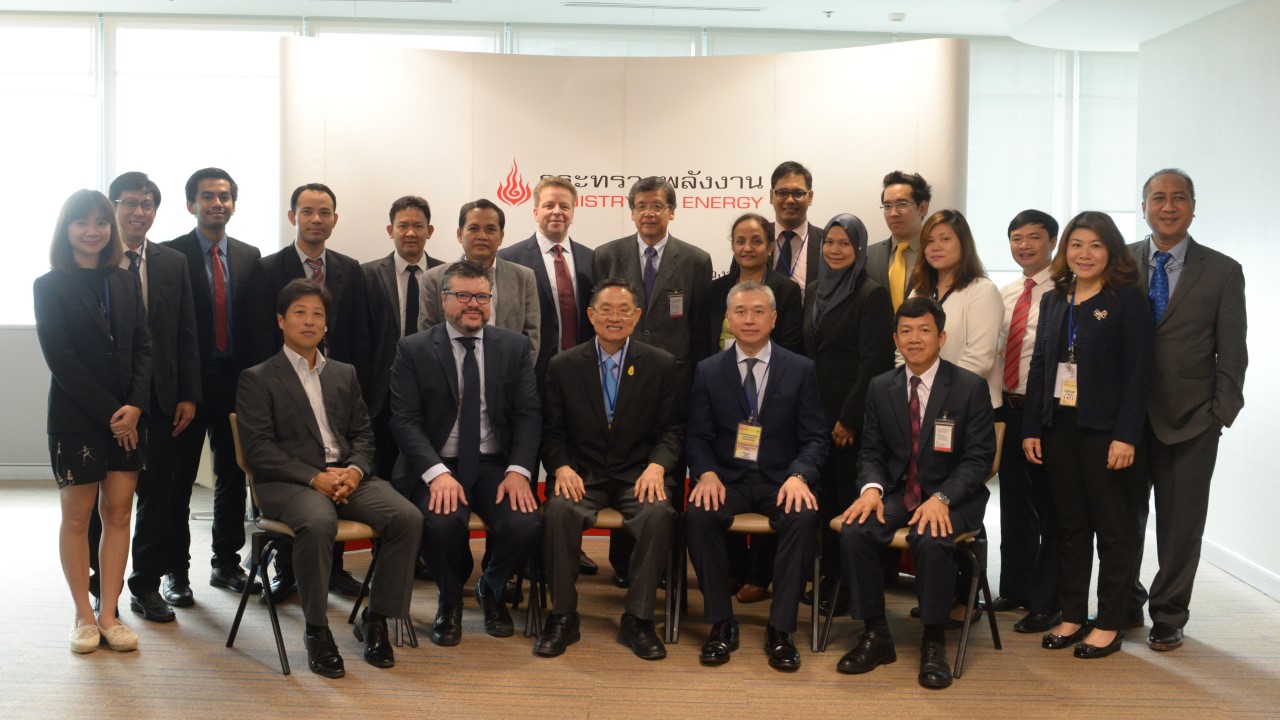Menu

The 1st ASEAN Petroleum Security Agreement (APSA) Task Force Phase II Meeting was successfully conducted on 25-26 August 2016 in Bangkok, Thailand. The Meeting was attended by a representative from Ministry of Mines and Energy, Cambodia; PERTAMINA of Indonesia; Ministry of Energy and Mines, Lao PDR; Petroliam Nasional Berhad (PETRONAS) of Malaysia; Energy Market Authority (EMA) of Singapore; Ministry of Energy, Thailand; Ministry of Industry and Trade, Vietnam; the ASEAN Council on Petroleum (ASCOPE), the ASEAN Centre for Energy (ACE), International Energy Agency (IEA) and Energy Economic Research Institute for ASEAN and East Asia (ERIA).
In the opening session, Mr. Chavalit Pichalai, Thailand’s Deputy Permanent Secretary for Energy stated that APSA is very significant to ASEAN Member States (AMS). With the support of dialogue partners and international organisations (DPs/IOs), APSA could be implemented in time and he hoped that the AMS will continue to assist on best endeavour basis. Mr. Nopporn Cruchinda, the ASCOPE Secretary in Charge (ASIC) added that the Meeting is an important step for APSA to move forward in implementation. In order to increase the effectiveness of APSA, ASEAN needs to establish APSA Secretariat to guide the AMS.
The Meeting identified several fundamental challenges facing the existing APSA, namely: i) the restricted definition of a country that needs assistance requires a flexible mechanism to define a critical situation; ii) the overly high standards to operate APSA; iii) the agreement to assist crisis-stricken Member States is still on a voluntary basis; and iv) lack of short-term emergency measures across AMS.
During the wrap-up session, ACE summed up the recommendations provided by IEA and ERIA to address the challenges, namely: i) to define emergency status and preconditions to qualify for APSA’s assistance; ii) to identify gaps and shortcomings of the existing APSA; iii) to establish a permanent APSA Secretariat; and iv) to correlate APSA and stockpiling development in the region. (SBS, photo credit: MoE, Thailand)
